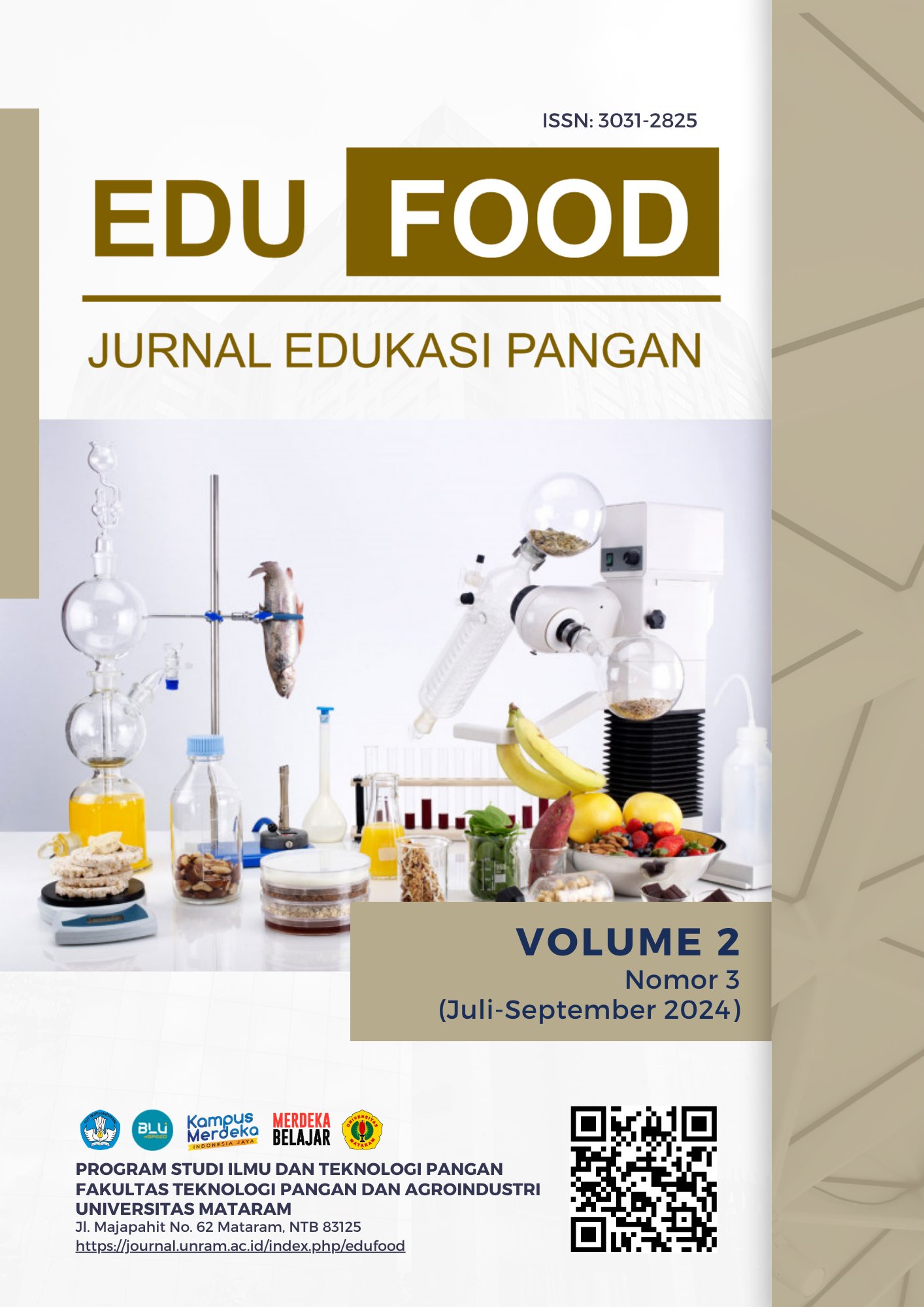THE EFFECT OF SORGUM (Sorghum bicolor L) FLOUR CONCENTRATION ON THE QUALITY OF DATE YOGURT (Phoenix dactylifera)
Keywords:
Dates, sorghum, yoghurtAbstract
Yogurt is a processed fermented milk product using Lactic Acid Bacteria (LAB). Yogurt can be used as a synbiotic drink made from skim milk with the addition of date juice and sorghum flour. This study evaluates the effects of sorghum flour and date syrup concentrations on the quality of date yogurt, a probiotic beverage made from skim milk. Using a Randomized Complete Block Design (RCBD) with two factors, the study examined the impact of date syrup concentrations (80% and 85%) and sorghum flour concentrations (2.5%, 5%, and 7.5%). The parameters assessed included total lactic acid, pH, antioxidant activity, total and viability of lactic acid bacteria (LAB), viscosity, color, and organoleptic properties. Data were analyzed using Analysis of Variance (ANOVA) at a 5% significance level with Co-Stat software, followed by Honest Significant Difference (HSD) tests for significant differences. The optimal formulation, combining 80% date syrup and 7.5% sorghum flour, met the SNI 01-2981-2009 standards, with characteristics of total LAB at 9.21 log CFU/mL, LAB viability at 0.05 log CFU/mL, total lactic acid at 2.14%, pH at 4.32, and viscosity at 146.16 mPa.s.Downloads
Published
2024-09-16
Issue
Section
Articles


